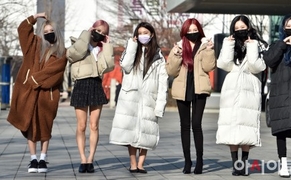By AsiaToday reporter Kim Eun-young - Companies are attracting customers with a mid-low pricing strategy in the Southeast Asian market.
Budget hotel chains are expanding in Vietnam due to growing demand for affordable accommodations, Japan's Nikkei Asian Review reported on April 5.
Along with its economic growth, Vietnam welcomed more than 10 million foreign tourists last year. But accommodation options have been limited to foreign luxury hotels and budget lodgings for locals. Demand is growing for foreigner-friendly and low-cost accommodations is growing.
Vietnam's A25 Hotel Group, which has 34 branches in Hanoi, Danang and Ho Chi Minh, has targeted this niche market. The hotel offers cheap rates of about $30 a night as well as special discounts for late check-in customers. According to the media, about 30% of customers are foreigners.
Foreign companies have also joined the competition. Japan's Route Inn Japan plans to open the first business hotel in the heart of Danang to attract tourists and business travelers from Asia, Europe and other countries with low pricing strategy. It will offer rates as low as $70 a night, which is one third that of nearby French hotel Novotel.
Cheap price doesn't mean bad quality of service. Budget hotels are not only economical, but also conveniently located and offer a variety of services such as breakfast with Western, Japanese and Vietnamese selections, multi-lingual service, open-air baths and internet connectivity, the media reported.
Cheap competition is also evident in Southeast Asian mobile device market. Samsung and OPPO dominated the Southeast Asian market while Apple fell outside the top 5 due to iPhone's excessively high price, reported Tech Wire Asia on April 3, citing a data by IDC.
Samsung ranked first in Malaysia in the fourth quarter of last year, surpassing Apple, OPPO, and Huawei with a market share of 32.8%. Samsung's success was driven by the popularity of its low-end smartphone model, the Galaxy J series, among the budget-conscious buyers. In addition, Samsung's flagship product in Malaysia was not a high-priced product, so the battery problem of the Galaxy Note 7 smartphone did not affect the overall performance.
"Competitive price points and heavy marketing activities in a now crowded market are the key driving factors for the budget-conscious Southeast Asian market. Smartphones priced at under US$150 make up for 68% of total smartphone shipments in the second quarter of 2016," said Jensen Ooi, an analyst with IDC Asia-Pacific's Research team.
Healthcare market is not different. Private medical institutions that offer quality medical care at 50-70% lower cost than large-scale private hospitals are growing. QualiMed, a group company of Philippine conglomerate Ayala Corp, is a typical example.
QualiMed operates a small-scale hospital in Manila's Makati area. It operates a variety of medical services, including internal medicine, otolaryngology and other fields for patients whose monthly household income is around 15,000 to 120,000 pesos ($301.19 to $2,409.51). The cost of the company's examination is about 1,000 pesos ($20.08), which is about half the cost of a nearby general hospital.
The Columbia Asia hospital group, where Japan's Mitsui & Co. owns a stake, also operates 18 hospitals targeting middle-class patients in three Southeast Asian countries, including Malaysia. Childbirth costs 3,500 ringgit ($789.16) at a hospital in the suburb of Johor Bahru, Malaysia. The procedures of a cesarean section cost 7,000 ringgit ($1,578.33) , which is 60-70% cheaper than an upper-class hospital.
#middle class #southeast asia #budget hotel #pricing strategy #medical care
Copyright by Asiatoday
Most Read
-
1
-
2
-
3
-
4
-
5
-
6
-
7





















